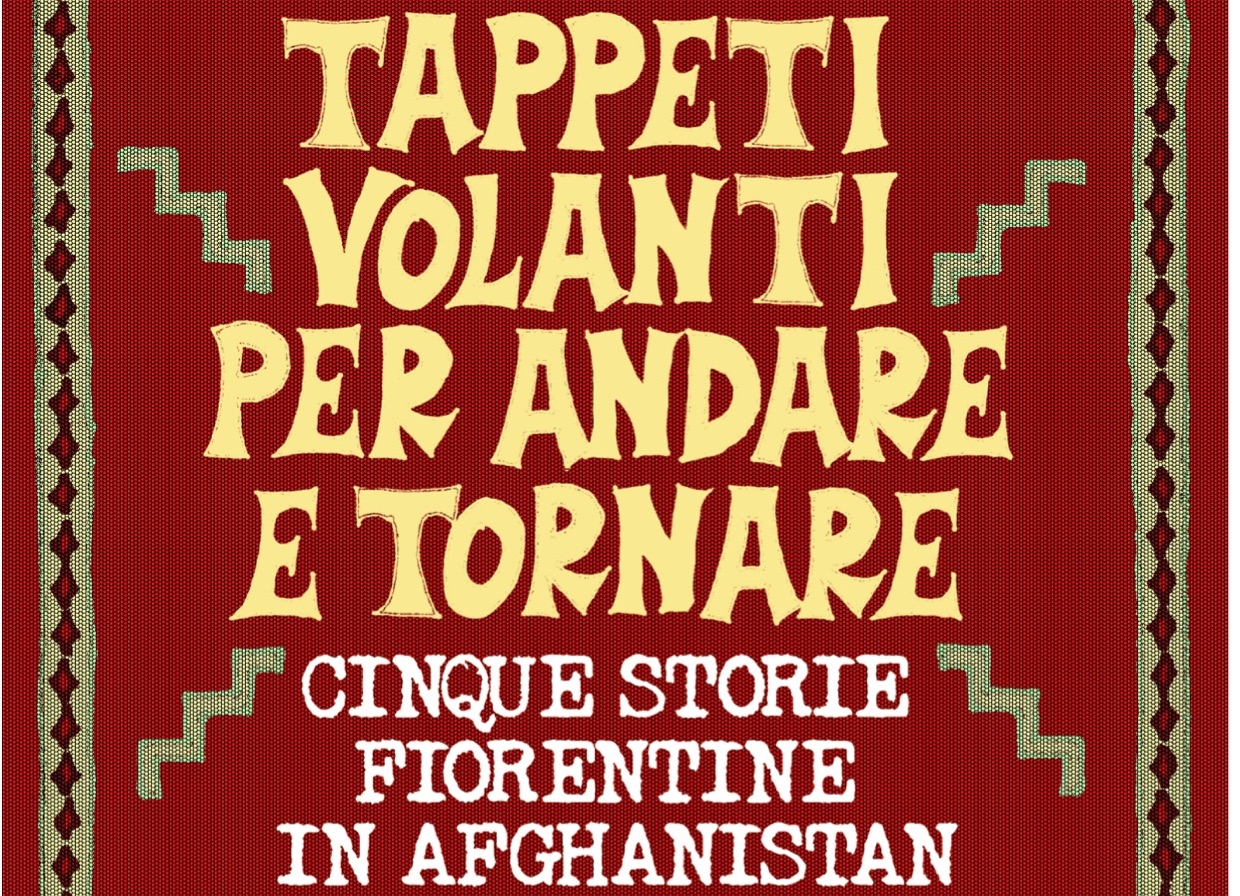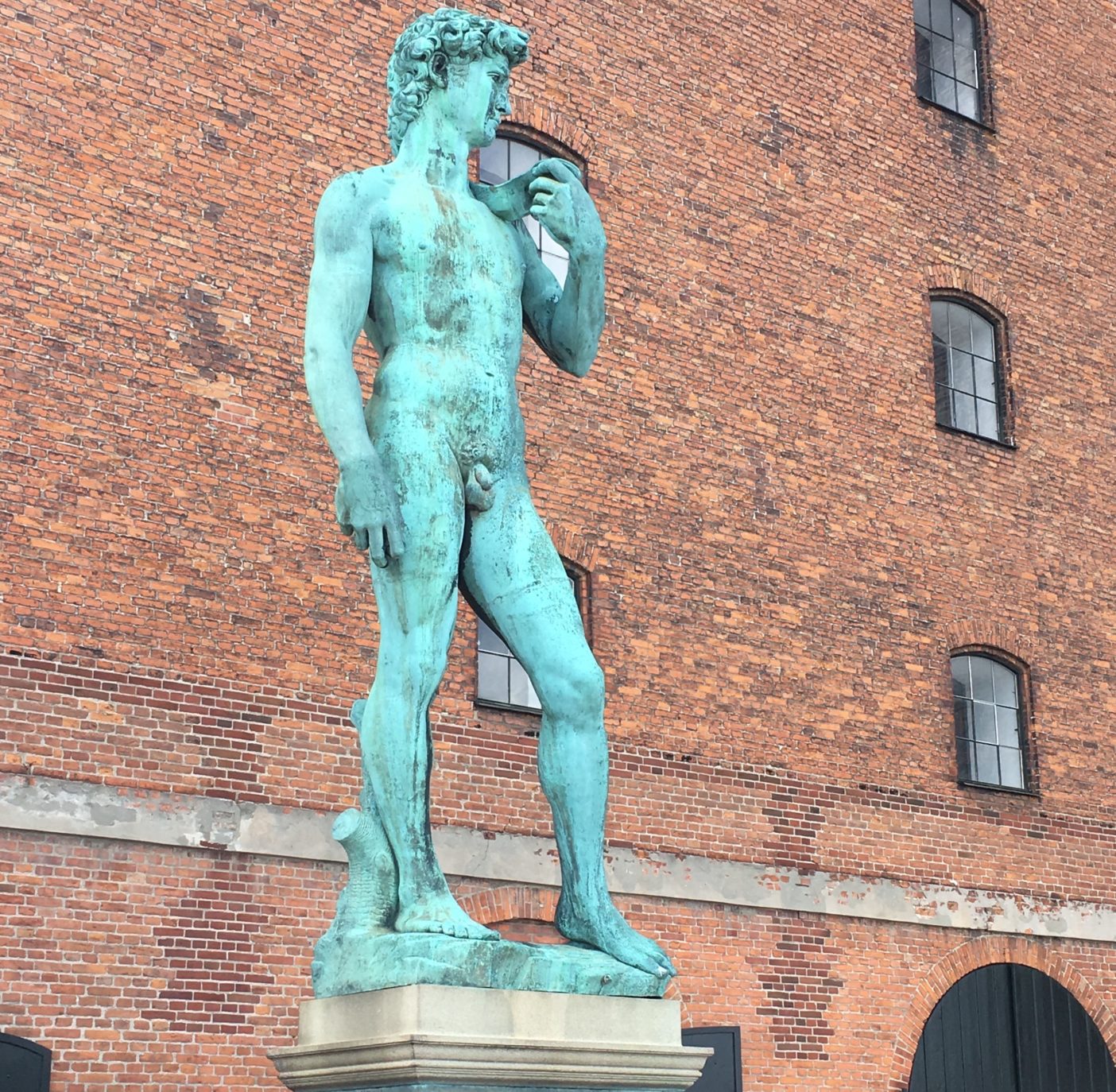Come ho ritrovato la mia Firenze in Afghanistan: 5 racconti
Improvvisamente, lontano, qualcosa della nostra città fa irruzione nel viaggio. E come su un tappeto volante, torniamo al punto di partenza.

Improvvisamente, lontano, qualcosa della nostra città fa irruzione nel viaggio. E come su un tappeto volante, torniamo al punto di partenza.

(English translation below)
Non voglio – come potrei? – recensire il mio ultimo libro, ma qui ne parlo perché è uscito da poco e offre uno spunto sull’intreccio tra il lontano e il vicino.
Breve scheda di presentazione. Titolo “Tappeti volanti andata e ritorno – cinque racconti fiorentini in Afghanistan”. Editore: Millelire di Stampa alternativa. Pagine: 46. Costo: solo 1 euro! – dunque la mia, e anche questo articolo, non è un’operazione di lucro.
Anzi, lo si può scaricare gratuitamente: Formato e collana: molto tascabile, senza copertina rigida, di quelli che sin da ragazzo ho amato molto, quei libretti chiamati Millelire con i classici e gli inediti introvabili di Tacito tradotto da Marinetti, della felicità di Epitteto, del cinema di Majakovskij o di Genet in Libano – una collana geniale inventata da Marcello Baraghini, immortale e amata perché la più piccola e la più amica del viaggiatore, del pendolare, dello squattrinato che non rinuncia al suo libricino di qualità in tasca (e sempre nella stessa mitica collana c’è un altro mio titolo, Notte a Gaza).
Veniamo all’argomento: cinque episodi, accaduti realmente in Afghanistan (uno in Uzbekistan, ma c’è di mezzo un afghano), nei quali, a un certo punto e in modo inaspettato, appare un richiamo a Firenze, un’incongruente connessione tra la città di origine e la remota Asia centrale. Tutto comincia con un inglese snob che a una festa a Roma inanellò tre sorprendenti città sorelle, “le uniche dove vale la pena di vivere”; si prosegue con la disperazione di due colleghi dell’ONU al cospetto dei Buddha di Bamiyan usati come bersaglio dai mujaheddin, si incontra poi, al termine di una giornata pericolosa, il custode di un cimitero monumentale ad Andijon nella valle di Fergana. Per finire, un venditore di meloni ancora a Bamiyan interessato a Machiavelli, e infine si discute di antica mura sotto le protezioni di cemento armato anti-bomba di Kabul. In ognuna di queste occasioni, quando non c’entrerebbe niente, Firenze fa irruzione in modo esplicito, tanto da scombussolare il dove sono?. Così, come dice l’artista dissidente cinese Ai Weiwei, non esistono più Occidente e Oriente perché la terra è una sfera, e non esiste neanche la separazione tra casa e lontano: siamo in una palla la cui circolarità ci riporta allo stesso punto. E anche nei posti meno probabili, ci si ritrova improvvisamente su un tappeto volante che conduce al punto di partenza, rivelando quanto le nostre storie sono più intrecciate di quanto sembri a prima vista.

Anche quando viaggiamo ci diciamo spesso il mondo è piccolo. In un avamposto della costa irlandese, in mezzo al niente si trova un monumento a Marconi che lì aveva lanciato il suo telegrafo senza fili; su un’isola delle Lofoten si trova una targa che ricorda il naufragio della Querina e l’accoglienza del suo equipaggio veneziano che impiegò anni prima di tornare in Italia portandovi dalla Norvegia il baccalà. Un barbiere delle Maurizio – mi è capitato – ci può tagliare i capelli nel mercato di Port Louis ricordando con poco piacere i suoi anni di guerra in Italia e la disonestà dei suoi abitanti, eccetera. Ognuno avrà il suo piccolo album di aneddoti e ricordi, incontri incongruenti, sorprese fuori contesto che ci riportano a casa. Come un improvviso David di Michelangelo (copia identica) sul lungo mare di Copenaghen.

Resta il sapore: cosa sanno di noi, altrove? È un gioco col quale ognuno di noi può cimentarsi, appena siamo fuori dal nostro orto. Anni fa, la redazione di un quotidiano cittadino avviò una rubrica estiva, con i racconti di chi in vacanze esotiche chiedeva ai locali cosa sapessero di Firenze. Ne sortirono testimonianze imprevedibili e spassosissime – confusioni imbarazzanti, sperticate dichiarazioni d’amore, “sentito dire” approssimativi o alzate di spalle.
Nelle mie “cinque storie fiorentine in Afghanistan” l’irruzione della dimensione di casa non è mai provocata, è arrivata come un frutto maturo che cade dall’albero. Ma può stare anche a ciascun viaggiatore sondare quello che lontano da noi evocano i nostri luoghi d’origine. Spesso sarà niente, ma a volte spunterà un fiore prezioso da riportare indietro, e in questo caso sarà quasi certamente un ricordo di fratellanza.
ENGLISH VERSION
This is not – how could I dare? – a review of my latest book, but here I am talking about it because it is fresh new offers an insight into the interweaving of the “far” and the “near”.
Title: “Flying carpets round trip – five Florentine tales in Afghanistan”. Publisher: “Millelire” by Alternative Press. Pages: 46. Cost: only 1 euro! – therefore this is not a profitable operation. Indeed, it can be downloaded for free.
Format and series: very pocket-sized, without hardcover. One of those little books that I have loved I was a boy, named “Millelire” and offering unusual classic works – such as Tacitus translated by Marinetti, the “Letter on Happiness” by Epictetus, the cinema of Mayakovskij or Genet in Lebanon – a brilliant format invented by Marcello Baraghini, sold in more than 20 million copies being so much loved because those are the smallest and ideal books for the traveller, the commuter, the penniless who does not give up his quality booklet in his pocket – and in the same series there is another title of mine, “Notte a Gaza” (“Night in Gaza”).
Let’s come to the subject: five episodes, which really happened in Afghanistan (one in Uzbekistan, but there is an Afghan involved), in which, at a certain point and unexpectedly, a reference to Florence appears, an incongruous connection between the city of origin and remote Central Asia. It all begins with a snobbish Englishman who at a party in Rome disclosed me the secret of the surprising sister cities, “the only ones where it is worth living”; we continue with the desperation of two UN colleagues at the foot of the Bamiyan Buddhas used as a target by the mujahedeen, then we meet, at the end of a special and dangerous day, the keeper of a monumental cemetery in Andijon in the Fergana Valley. Finally, we discover a melon seller interested in Machiavelli and then we talk about ancient walls under the Kabul’s bomb-proof reinforced concrete walls.
On each of these occasions, whit no preparation at all, an unexpected image of Florence appears – to the extent that I wonder where I am. Thus, as the Chinese dissident artist Ai Weiwei says, West and East no longer exist, being the earth a sphere, and there is no separation between “home” and “far away”: we are in a ball whose circularity brings us back to same point. And even in the least likely places, we suddenly find ourselves on a flying carpet that leads to the starting point, revealing how our stories are more intertwined than they seem at first glance.
When we travel we happen to say “the world is small”. In an outpost on the Irish coast, in the middle of nowhere, we find a monument to Marconi who had launched his wireless telegraph there; on an island in Lofoten there is a plaque commemorating the shipwreck of the Querina and the reception of its Venetian crew who took years before returning to Italy bringing the cod from Norway. A Mauritian barber – it happened to me – cut my hairs in the Port Louis market, remembering with little pleasure his years of war in Italy and the dishonesty of its inhabitants, and so on. Everyone will have their own little album of anecdotes and memories, incongruent encounters, out-of-context surprises that bring us back home. Like a sudden David by Michelangelo (identical copy) on the Copenhagen seafront.
The flavor remains: what do they know about us, elsewhere? It is a game that each of us can play as soon as we are out of our garden. Years ago, the editorial staff of a city newspaper started a summer column, with the stories of those on exotic holidays who asked the locals what they knew about Florence. Unpredictable and hilarious testimonies emerged – embarrassing confusions, exaggerated declarations of love, very approximate knowledge if any.
In my “five Florentine stories in Afghanistan”, the irruption of the dimension of the house is never provoked, it came like a ripe fruit falling from the tree. But it can also be up to each traveller to explore what our places of origin evoke far from us. Often it will be nothing, but sometimes a precious flower will blossom to bring back, and in this case, it will almost certainly be a memory of brotherhood.
